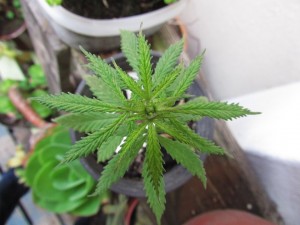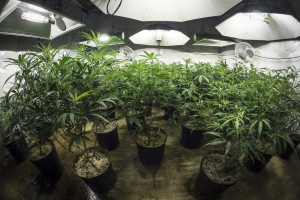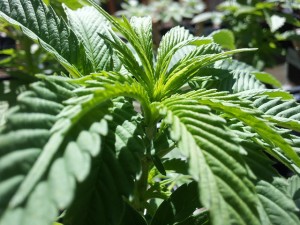 It isn’t just U.S. states that are ready to jump on board – if they haven’t already – with legalizing marijuana. Legislators in the Commonwealth of the Northern Mariana Islands (CNMI), a U.S. territory, recently approved a bill to legalize marijuana.
It isn’t just U.S. states that are ready to jump on board – if they haven’t already – with legalizing marijuana. Legislators in the Commonwealth of the Northern Mariana Islands (CNMI), a U.S. territory, recently approved a bill to legalize marijuana.
By a margin of 18-1, with just one abstention, the CNMI House of Representatives passed the legislation. This piece of legislation seeks to end cannabis prohibition for adults over 21 and creates a system of taxed and regulated sales. It would also welcome medical marijuana and industrial hemp.
This is not the first time that the territory pushed for legalization. In May, the Senate approved a similar marijuana legalization bill. The proposal initially cleared a committee in the House, but its advancement was later halted in response to procedural concerns. It was said that revenue-generating legislation must originate in the House.
As a result, House lawmakers made a few changes to the Senate bill and filed a new proposal of their own. This piece of legislation then won approval by the full chamber.
“The people of the CNMI recognize that the prohibition of marijuana has been terribly misguided and harmful, and our leaders are in touch with the public’s sentiment on this issue,” Lawrence Duponcheel of Sensible CNMI said in a statement.
“Today, members of the CNMI House of Representatives showed their commitment to honoring the will of the people.”
If this bill is successfully enacted, CNMI will become the first U.S. jurisdiction to go directly from outlawing marijuana across the board to allowing recreational use. This is very unique, considering that the territory has no existing medical cannabis program; this is something that has been a precursor to broader legalization in a growing number of states.
It will also be an important milestone because it would make CNMI the first to legalize a system of regulated cannabis production and sales through an act of lawmakers, rather than a ballot measure. (Vermont passed a law earlier this year to legalize marijuana possession and home cultivation, however, the policy does not allow for any form of cannabis commerce.)
Justin Strekal, political director for NORML, commented on marijuana reform’s growing popularity with voters in an interview, saying that “The lawmakers and people of CNMI are on track to make history, and more U.S. policymakers would be wise to take notice before the upcoming midterm elections.”
The next step? The CNMI Senate is now expected to take on the House-passed marijuana legalization bill. These changes have the potential to open up enormous opportunity. Are you hoping to expand your operation or launch your business venture? Consider working with the team at Marijuana Merchant Account and jump in on the expansion of the marijuana industry.


 Early this month, President Donald Trump shared that he was leaning towards supporting new bipartisan marijuana legislation – delivering a blow to Attorney General Jeff Sessions. U.S. Attorney General Jeff Sessions has been an outspoken opponent of marijuana. He lifted an Obama administration policy and freed federal prosecution to more aggressively pursue cases in states where marijuana has been legalized.
Early this month, President Donald Trump shared that he was leaning towards supporting new bipartisan marijuana legislation – delivering a blow to Attorney General Jeff Sessions. U.S. Attorney General Jeff Sessions has been an outspoken opponent of marijuana. He lifted an Obama administration policy and freed federal prosecution to more aggressively pursue cases in states where marijuana has been legalized. Seems like only non-smokers and those who don’t mingle with cannabis users were shocked by this new Quinnipiac University national poll on marijuana legalization. If you didn’t see cannabis acceptance hit such a high so soon, then you have a lot to catch up with on the marijuana industry. To refresh your memory, California legalized recreational cannabis on the first day of this year, proof that the pursuit for decriminalization has been secretly on fire. Plus, more and more states want the drug legalized.
Seems like only non-smokers and those who don’t mingle with cannabis users were shocked by this new Quinnipiac University national poll on marijuana legalization. If you didn’t see cannabis acceptance hit such a high so soon, then you have a lot to catch up with on the marijuana industry. To refresh your memory, California legalized recreational cannabis on the first day of this year, proof that the pursuit for decriminalization has been secretly on fire. Plus, more and more states want the drug legalized.
 The legal marijuana industry won’t be slowing down any time soon. Recent research released in a report by cannabis research firm ArcView revealed just how fast the industry is growing. Through their partnership with BDS Analystics, ArcView discovered that North American legal weed sales grew by 33 percent in 2017 to $9.7 billion. The prediction is that they will continue to climb by an average of 28% annually through 2021. If this forecast turns out to be true, that would mean about $24.5 billion in annual legal pot sales by 2021.
The legal marijuana industry won’t be slowing down any time soon. Recent research released in a report by cannabis research firm ArcView revealed just how fast the industry is growing. Through their partnership with BDS Analystics, ArcView discovered that North American legal weed sales grew by 33 percent in 2017 to $9.7 billion. The prediction is that they will continue to climb by an average of 28% annually through 2021. If this forecast turns out to be true, that would mean about $24.5 billion in annual legal pot sales by 2021. It’s safe to say that the legal marijuana industry has faced many and seemingly endless obstacles. With a new administration,
It’s safe to say that the legal marijuana industry has faced many and seemingly endless obstacles. With a new administration,  If all goes as planned, it would appear that Nevada will be the first state to allow recreational users to consume
If all goes as planned, it would appear that Nevada will be the first state to allow recreational users to consume  With each state that legalizes marijuana use, opponents express their concern that it will lead to a spike in drug abuse and crime. Cannabis activists, on the other hand, continue to proclaim the benefits of legalizing marijuana. So, who is right? Or do both sides have a valid point? Will legalization hurt America’s youth by increasing drug and alcohol abuse in young people?
With each state that legalizes marijuana use, opponents express their concern that it will lead to a spike in drug abuse and crime. Cannabis activists, on the other hand, continue to proclaim the benefits of legalizing marijuana. So, who is right? Or do both sides have a valid point? Will legalization hurt America’s youth by increasing drug and alcohol abuse in young people?